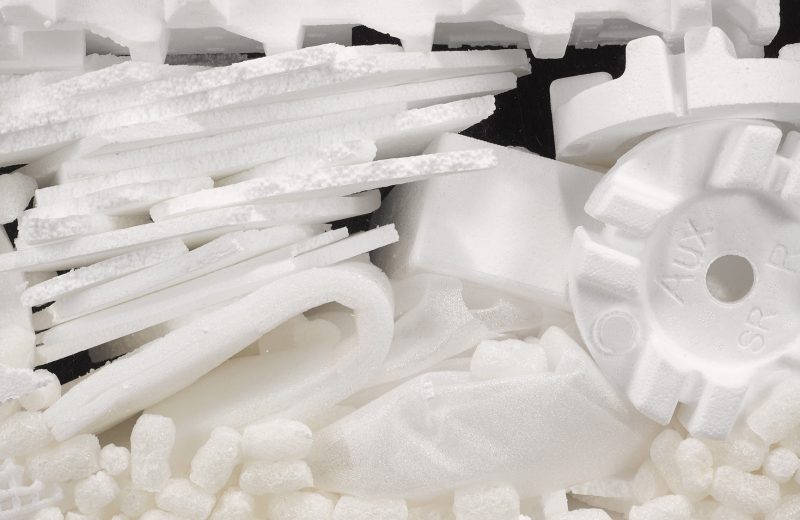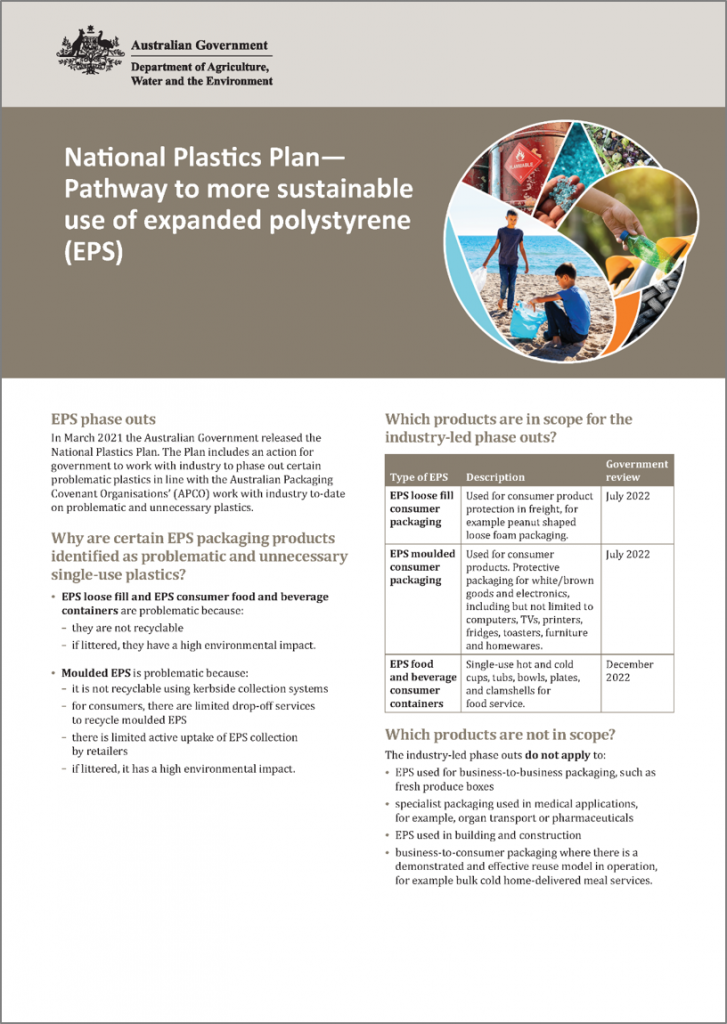Expanded polystyrene (EPS) – in multiple applications such as foodware, loose fill and moulded packaging – will be phased out over the next few years across Australia. This landmark sustainability initiative was recently announced in the National Plastics Plan released by the Australian Government.
The Department of Agriculture, Water and the Environment has now issued an industry factsheet further explaining the planned phase-out encouraging industry to collaboratively create a road map out of EPS.
The National Retail Association is pleased to be part of advisory consultation with government, sharing retailer perspectives, successes and challenges which are essential to a successful phase-out.
Which EPS packaging products are being phased out and why?
EPS, if littered, has a high environmental impact. Certain types of products have been identified as problematic and unnecessary single-use plastics for a range of reasons.
EPS loose fill and EPS consumer food and beverage containers are being phased out because they are not recyclable.
Moulded EPS is being phased out because:
- it is not recyclable using kerbside collection systems
- for consumers, there are limited drop-off services to recycle moulded EPS
- there is limited active uptake of EPS collection by retailers
Which products are not in scope?
The industry-led phase outs do not apply to:
- EPS used for business-to-business packaging, such as fresh produce boxes
- specialist packaging used in medical applications, for example, organ transport or pharmaceuticals
- EPS used in building and construction
- business-to-consumer packaging where there is a demonstrated and effective reuse model in operation, for example bulk cold home-delivered meal services.
Proactive developments
Most national quick service restaurants phased-out EPS over a decade ago and many retailers have been proactively designing out EPS packaging over recent years. Most state governments have announced plans to ban EPS foodware items within the next 2-3 years and the majority of Australian food outlets have transitioned already.
Challenges still exist especially for large, fragile and food safety applications, but innovations are being developed and tested across the world. The NRA commends the Government for adopting a phase-out model (similar to the successful microbeads phaseout process) which encourages businesses to develop solutions which recognise product differences and challenges, aligned with appropriate timeframes, rather than a one-size-fits-all approach.
Get involved
APCO will host a national virtual workshop on Tuesday 8 June 2021 bringing industry and government together to provide input into the roadmap out of EPS. To register for the national EPS workshop please visit: https://www.eventbrite.com.au/e/146702401833
Next Steps
In July and December 2022, the Australian Government will review industry progress in phasing out the applicable EPS packaging and containers. The Government will then consider if any regulatory action is warranted.
During this transition, the NRA will continue to work with industry and Government to champion commercially feasible solutions with the goal of reducing EPS consumption, minimising retailer costs, and improving the economics of collection and recycling. This approach will allow industry to demonstrate its leadership, potentially avoiding the need for any regulatory intervention.
APCO will provide additional support to industry after the national workshop including knowledge sharing sessions to support industry associations and businesses to take practical action, and will also release the Sustainable Packaging Program in mid-2021. More information will be available on APCO’s website and at the national workshop.
DOWNLOAD FACTSHEET
Many areas of sustainability currently affect retailers, and the National Retail Association is actively engaged in numerous projects and regulatory consultation. Find out more about our work in this area. Contact the Policy Team at policy@nra.net.au



